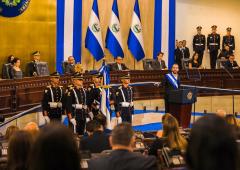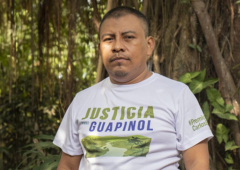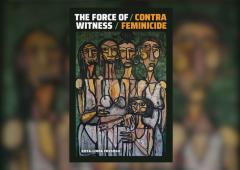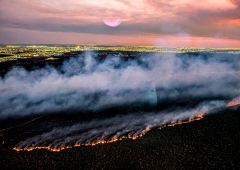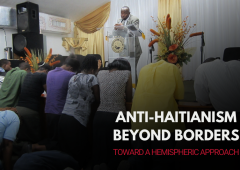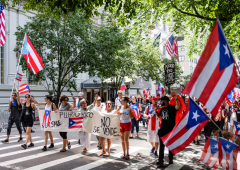Articles by: NACLA
Mientras siguen acumulándose las violaciones de derechos humanos bajo el estado en El Salvador, un grupo bipartidista de legisladores estadounidenses intenta encubrir los abusos.
The assassination of Honduran water defender Juan López offers a chilling reminder of the threats local leaders face in the most dangerous region in the world for environmental activists.
A draft health standard puts the labor and livelihoods of traditional midwives at risk. A network of autonomous midwives calls for an intercultural and intersectional approach to reproductive health care.
In the wake of a firestorm of racist rumors, many members of a thriving Haitian community are considering relocating, pushed out by threats and hate.
Rosa-Linda Fregoso’s book invites readers to become collective witnesses and develop radical hope to respond to feminicide and gender violence.
La formulación del presidente Nayib Bukele de la seguridad como una batalla espiritual entre el bien y el mal ayuda a explicar su popularidad y su apoyo a Israel.
President Nayib Bukele’s framing of security as a spiritual battle between good and evil helps to explain his popularity and his support for Israel.
As blazes set new records, it is important to denormalize the framing of forest destruction as a simple natural cycle, detached from criminal activity, intentional deforestation, economic interests, and climate change.
From the United States to the Dominican Republic to the Bahamas, the collective scapegoating and mass deportation of Haitians for political gain lays bare a particular kind of anti-Blackness.
La Ley del Estatus de Puerto Rico presenta un referéndum sobre el futuro político del archipiélago, pero las imposiciones de E.E.U.U. no permitirán su liberación total. Una campaña permitiría nuevas posibilidades autónomas.
By centering Indigenous women’s lived experiences, Maclean’s book presents a gendered analysis of the pluri-economy under MAS leadership in Bolivia.
Long associated with the Andean region, coca cultivation is expanding rapidly in Central America. As eradication efforts intensify, local communities may be in the crossfire.

